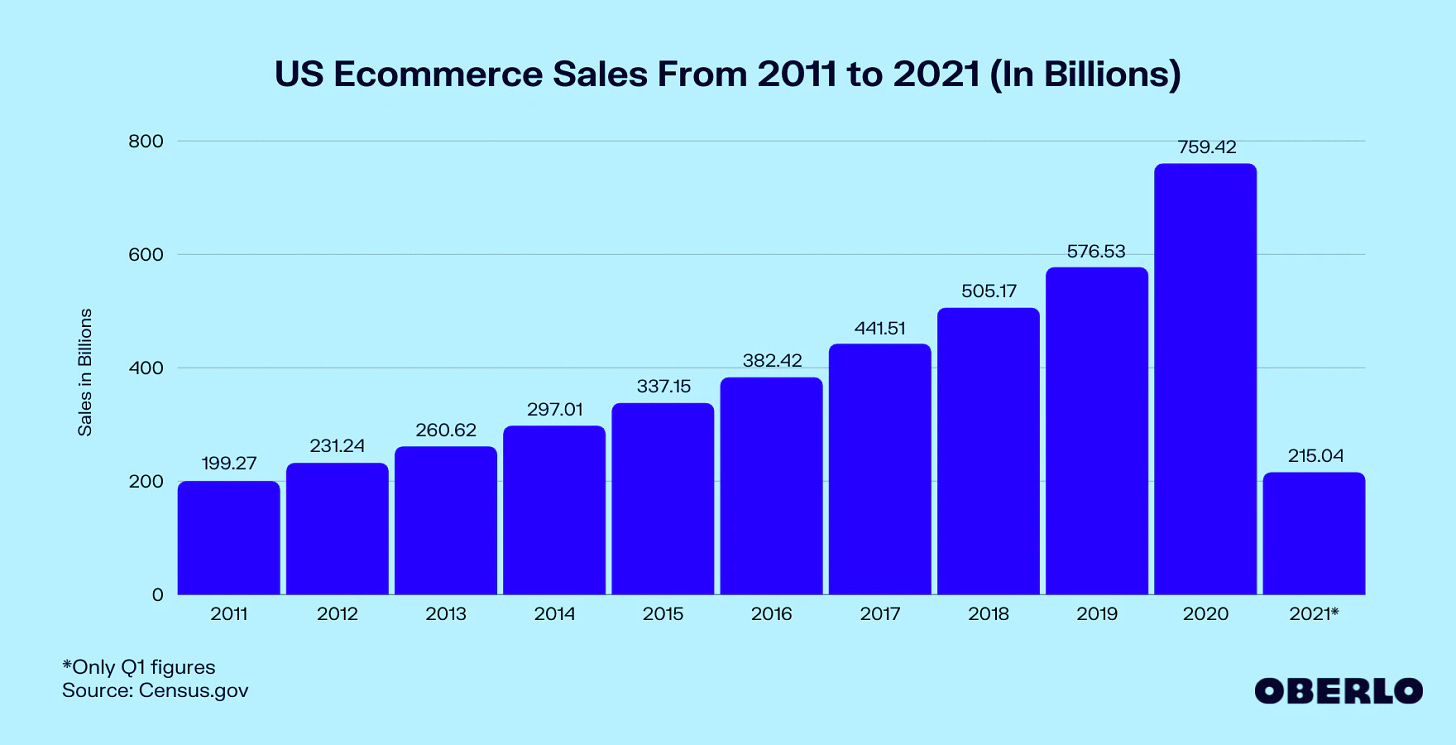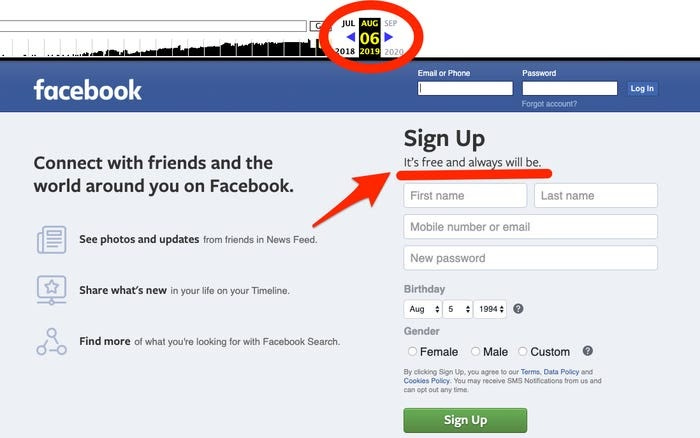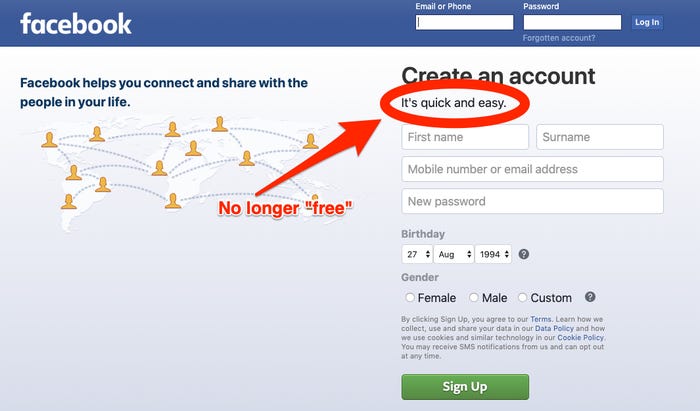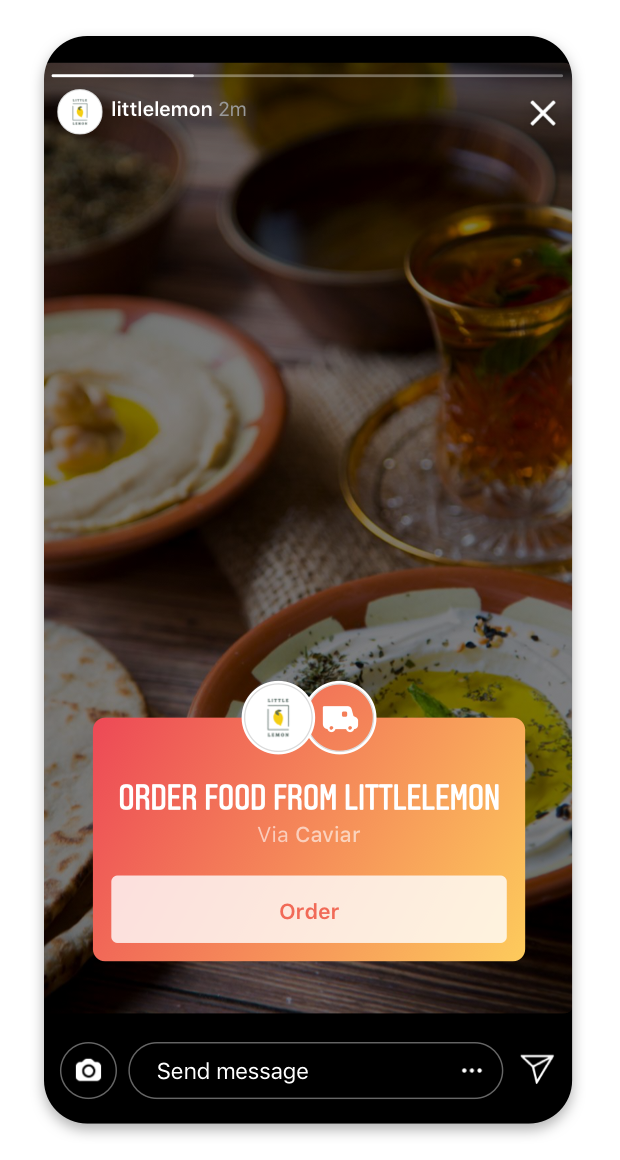Apple’s War with Facebook Is Actually an Attack on Small Businesses and Consumers
This is not about privacy - it is about profits.
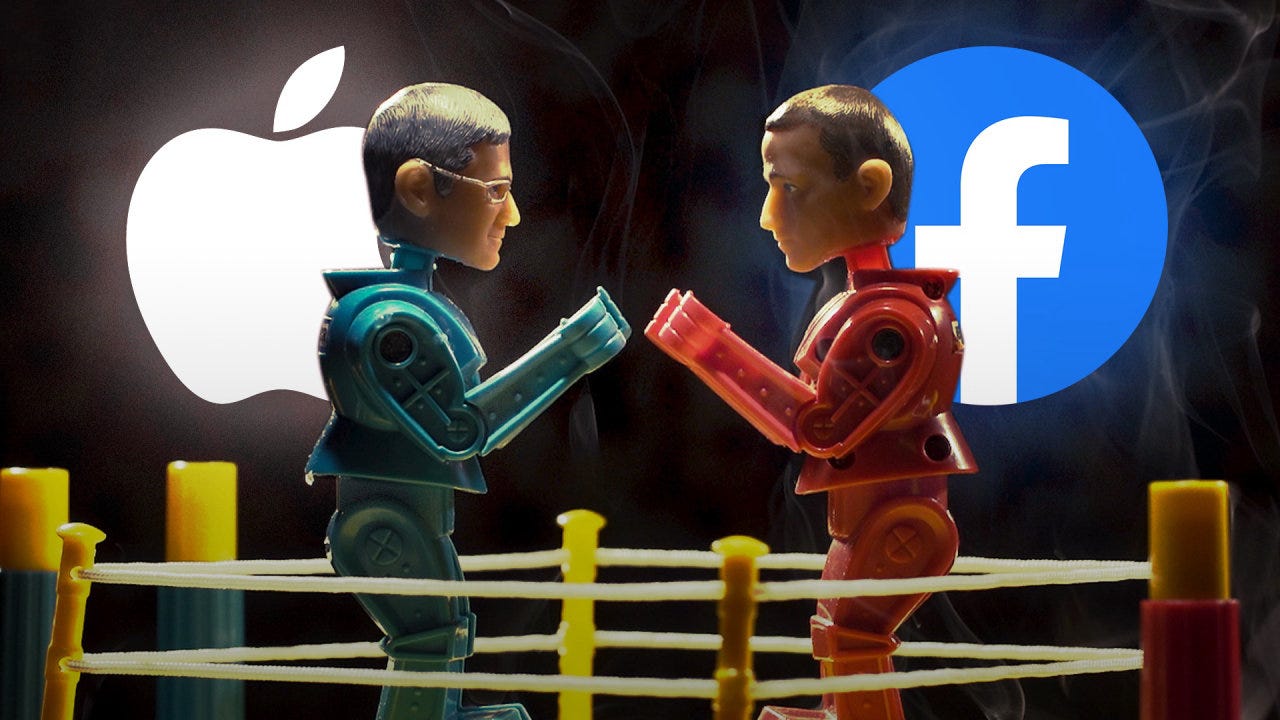
We’ve been in a golden era of ecommerce these past few years. It’s never been easier and cheaper to launch a business than these past five years.
All you really need to do is develop a product, launch a Shopify, add the Facebook pixel, run some ads, and boom - you’re in business. Of course, this is a gross oversimplification of things, but you get the point.
The rollout and implementation of the new Facebook Pixel in 2017 revolutionized e-commerce as we know it. After introducing the new pixel, Facebook watched their ad revenue climb from $40.6B to $85.9B in just 3 years. The introduction of the pixel drove ecommerce forward.
It allowed advertisers to easily segment audiences in ways that weren’t available before. When I was marketing a music festival, I would send out offers along the lines of “Here’s an extra 15% off if you complete your purchase in the next 48 hours!” because I could target anyone who added to cart, but never purchased. The pixel made that possible.
Apple is hellbent on disrupting all of this with the iOS 14.5 update they released in April which broke Facebook & Google’s ability to track users for marketing purposes. Apple cites privacy concerns and positions itself as putting the customer first but it’s a lie. Like Ja Rule, we’ve been hustled, scammed, bamboozled, hoodwinked, led astray!
Their move to limit tracking in the name of privacy is purely for optics. They’re a wolf in sheep's clothing. This is not about privacy - it is about profits.
The Ecommerce Goldrush & Digital Ad Revenues
Apple wants a piece of the pie. They always have and even tried once before, but they never got it right. In 2010, Steve Jobs launched iAd in direct competition with Google. The vision was to gain 50% of the mobile advertising market and went so far as to lock in $60 million in ad commitments from the likes of Disney, Target, and Citi. They only ended up with ~5% of mobile ad market share and ended up shutting down iAd in 2016. A flop.
Fast forward to 2020. The Coronavirus pandemic accelerated the ecommerce gold rush. As in-person shopping came to a halt and the businesses that remained had to quickly pivot their strategy to sell online exclusively. As a result, ecommerce sales grew from $576 billion in 2019 to $759 billion in 2020. We’re on pace to break $800 billion in 2021!
In 2020, global ad spend saw a 25% increase vs 2019. Social media ad spend in the US has doubled since 2017.
There’s too much money on the table and Apple decided it’s time to pull up a seat. The first step was to render the pixel useless for advertisers. The next step will be to introduce a new iteration of the iAd platform.
What does this mean for Facebook?
Only 4% of US iPhone users have opted in for app tracking after the rollout of iOS 14.5 and it’s sitting at 12% worldwide. This update has essentially killed the Facebook Pixel. Advertisers are actively reallocating their ad budgets to other platforms as their Facebook performance continues to decline.
If Facebook cannot navigate this massive blow to their business model, they’re going to have a very difficult time when it’s time to report Q3 earnings to investors. I would imagine they would shift their efforts from the US market to the rest of the world. While Apple accounts for 56% of mobile users in the US, they only have 13% of the global market. Android is still king globally and the pixel remains unaffected.
They will need to push back against Apple to make this work.
Facebook Gears Up for War
Facebook used to proudly tout “It’s free and always will be” up until 2019 when they quietly removed it from their messaging.
It’s always been free because, with Facebook, you are the product. But with Apple slowly relaunching a new iteration of iAd, Facebook has to adapt. And with the introduction of opt-in tracking in iOS 14.5, Facebook is beginning to scramble. Their messaging changed from “It’s free and always will be” to in-app notifications encouraging iOS 14.5 users to “Help keep Facebook free of charge.”
Does this mean iPhone users will need to start paying for Instagram and Facebook? How many people would actually pay for this? Maybe they’re banking on the fact that we’re addicted to their platforms.
Regardless, this is an interesting pushback from Facebook. Turn on tracking, or be prepared to pay. It’s an interesting paradigm shift for social media because, with a paid component, the user goes from being the product to the platform being the product. This will certainly change the dynamics of social media platforms going forward.
Apple’s History of Harming Consumers
Apple has long leveraged its monopolistic power to launch wars with businesses in an effort to get more money while using its users as expendable footsoldiers. They took on Fortnite, a video game for kids because Epic Games (the parent company) added new direct payment options. The move from Epic saved customers 20% and gave Epic an extra 10%. This threatened Apple’s ability to assess the 30% fee on all App Store purchases which led to them blocking all updates to the app going forward. You can read more about it here.
I commend Facebook on their efforts to help small businesses during the pandemic. Facebook made a valiant effort to help businesses make that transition to stay afloat during unprecedented times - more than most other platforms. They launched a full-on business resource hub that included free courses to help move businesses online. They partnered with Uber Eats, Caviar, Postmates, and other food ordering partners to roll out food order stickers on Instagram stories to encourage consumers to support their local businesses.
As much as I like Apple, I am disappointed by their effort to make more money by cutting the lifeline that kept so many small businesses afloat all under the guise of privacy.
It’s one thing to be a brutal capitalist, it’s another to be a snake about it.





